Roles and Responsibilities of the ICT Teacher: London School
VerifiedAdded on 2023/01/05
|5
|786
|84
Homework Assignment
AI Summary
This assignment outlines the roles and responsibilities of an ICT teacher at the London School of Academics. The document covers the organization, learner age range (post-14), learner types (visual, auditory, reading/writing), and the main subject area of ICT skills. The teacher's role involves delivering ICT knowledge, promoting digital literacy, and fostering independent learning. It describes how the teacher works with colleagues to enhance teaching quality through the use of digital tools, online assignments, and active classroom participation. The assignment references various books and journals on teacher roles, professional development, and student-centered classrooms, highlighting the importance of adapting teaching methods to different learning styles and integrating technology to improve student engagement and learning outcomes.
1 out of 5
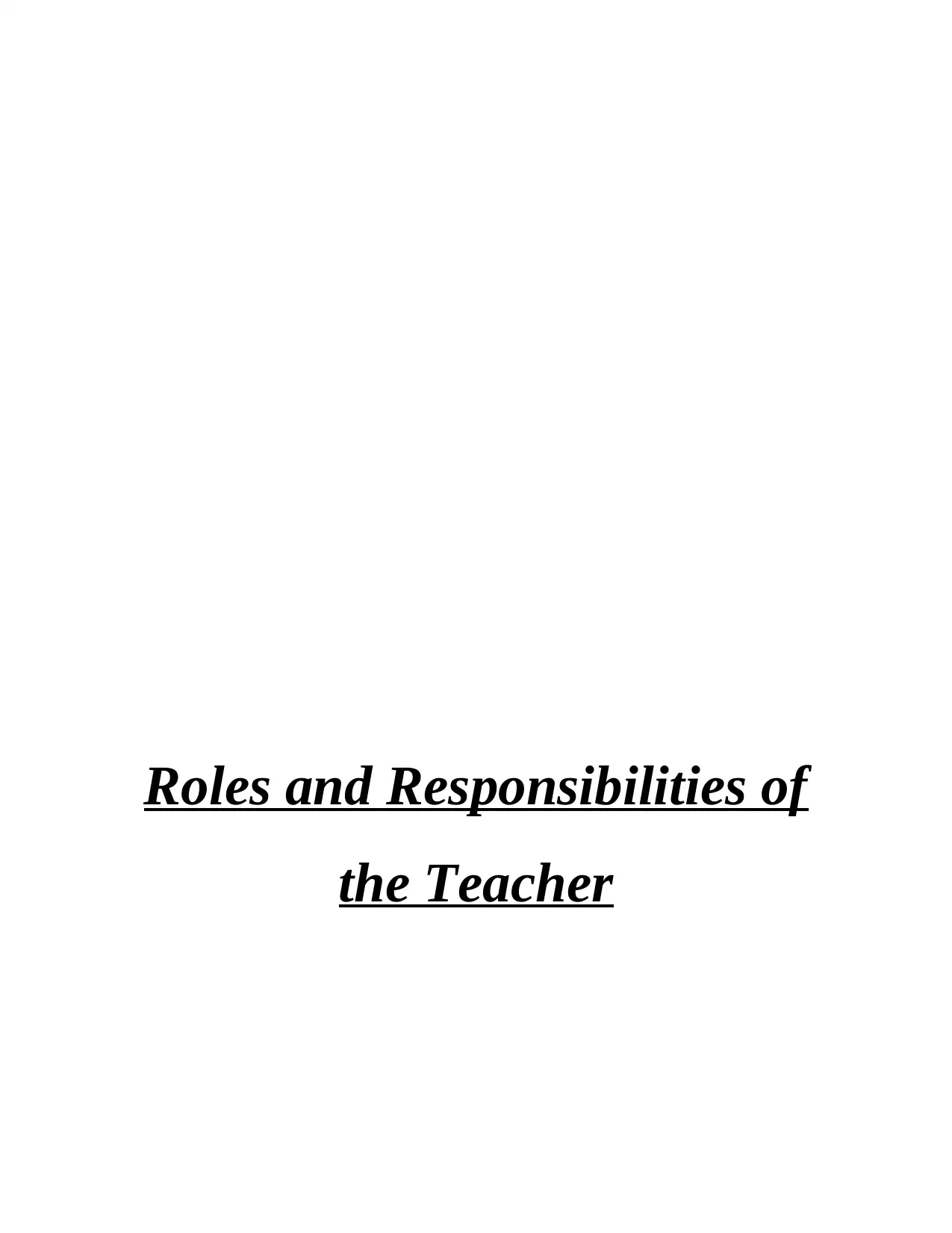
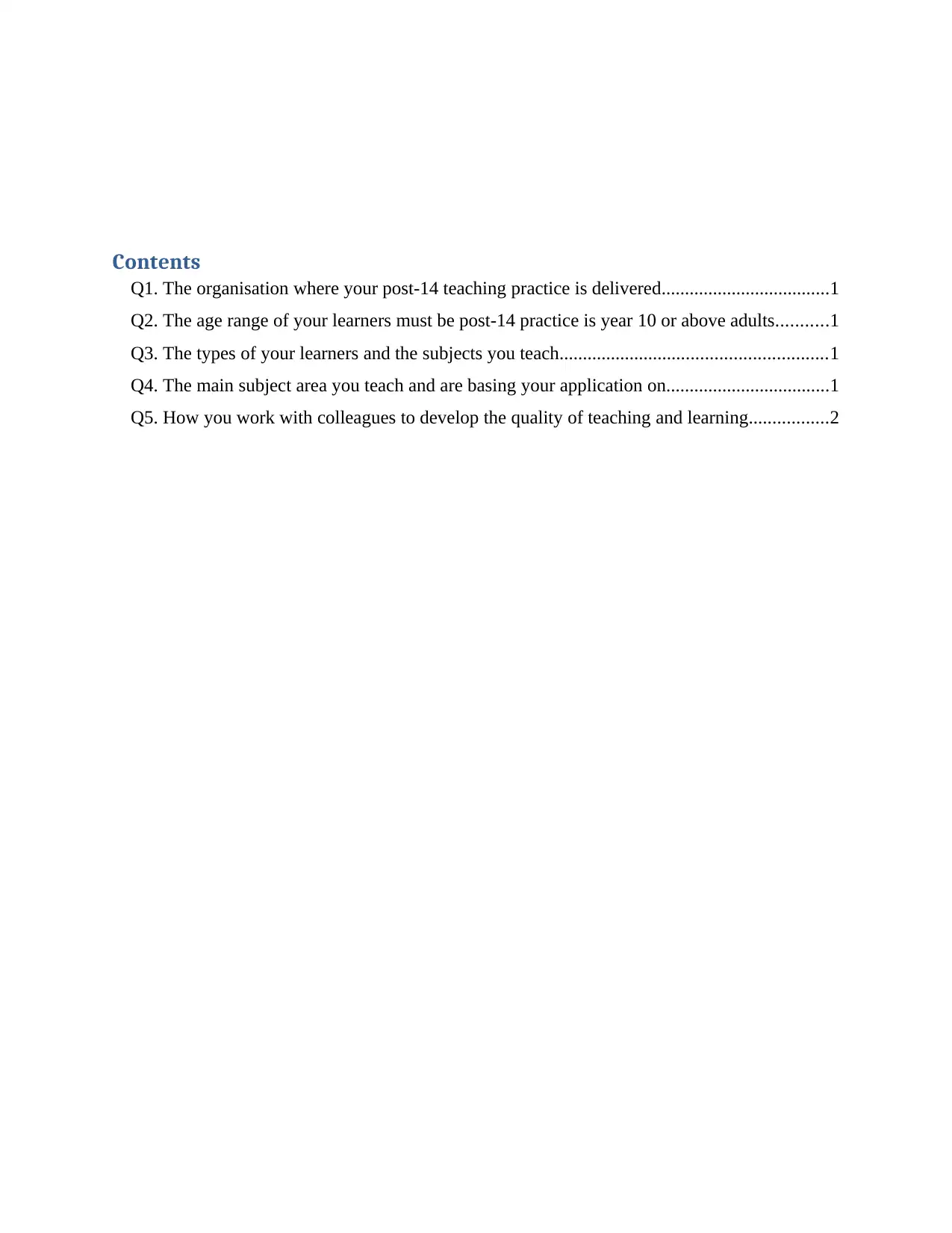
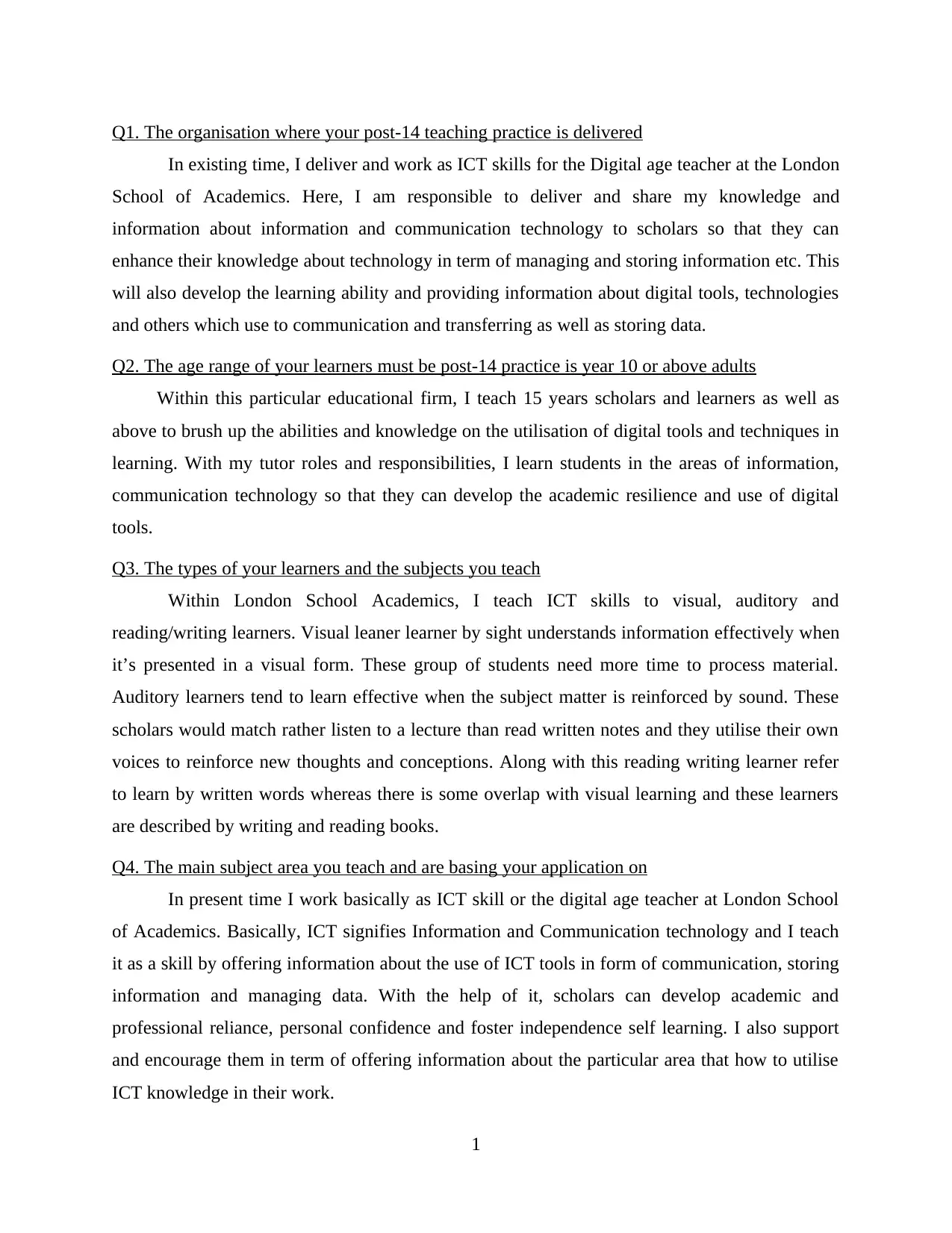

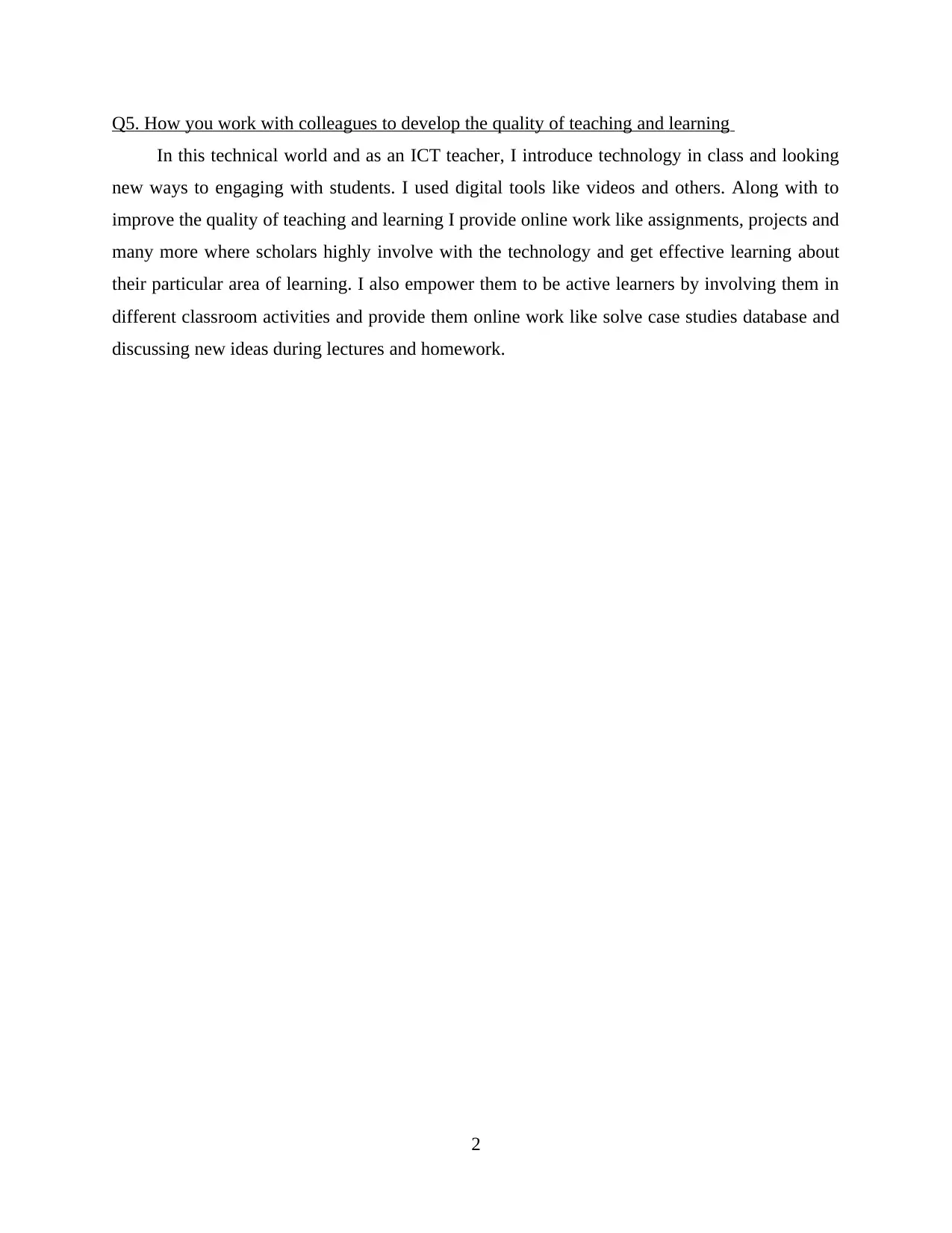
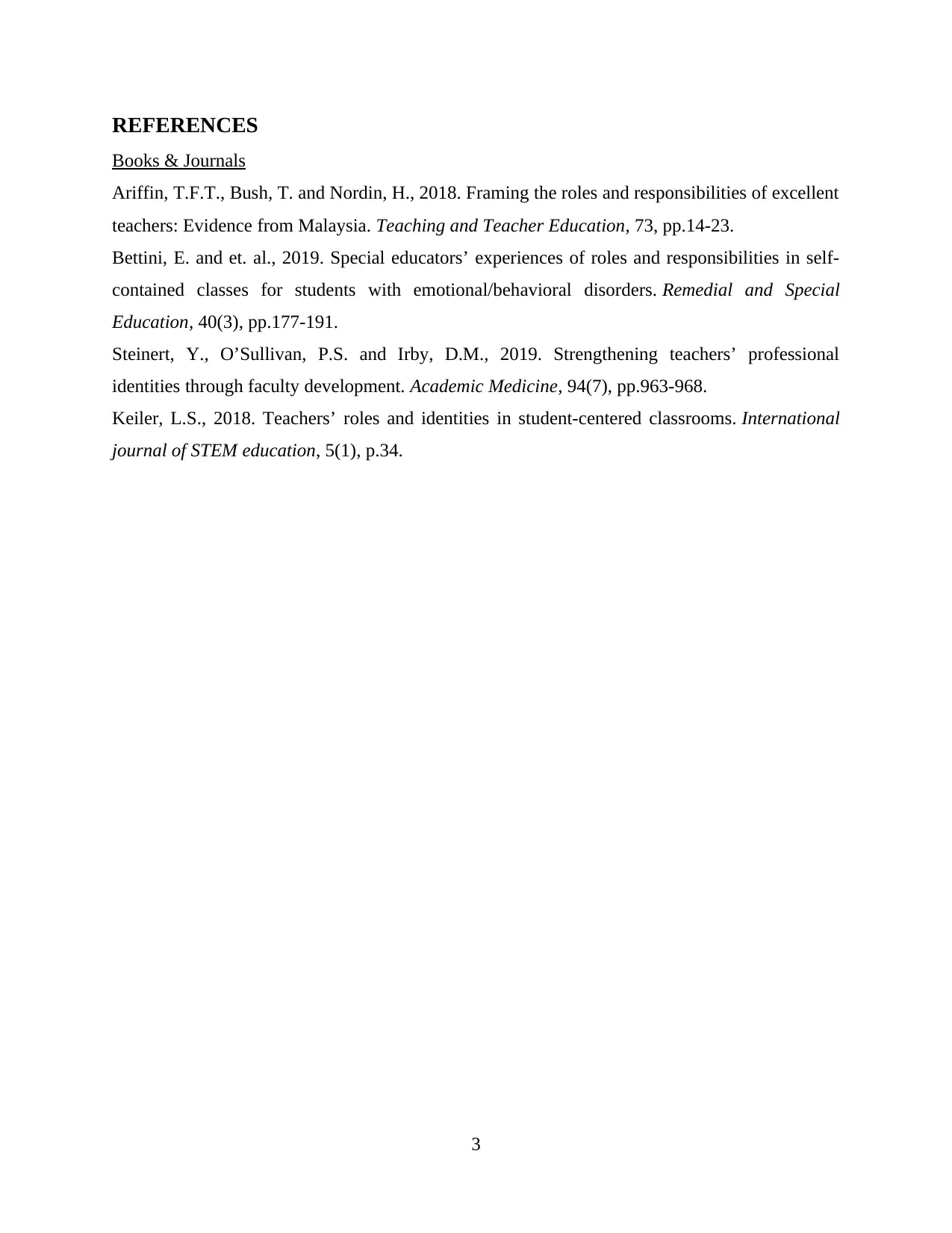





![[object Object]](/_next/static/media/star-bottom.7253800d.svg)